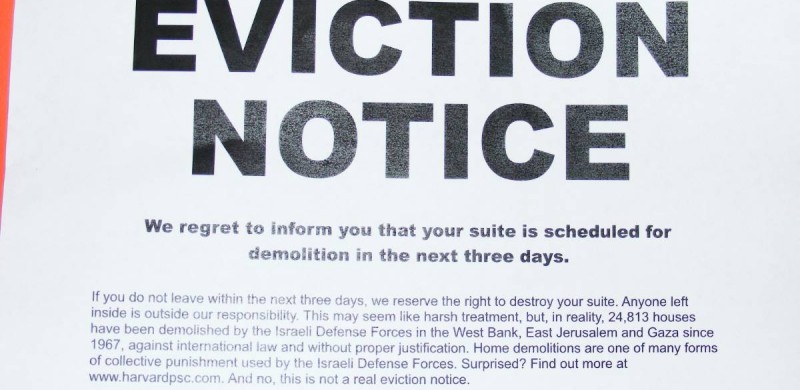Shannon Sterner evicted for using medical marijuana as a patient under the Michigan Medical Marijuana Act
By Michael Komorn
Leoni Township resident, Shannon Sterner, is 25-years-old, and living with pain.
She has tried medications to manage the effects of fibromyalgia and reactive arthritis brought on by an infection–none of which have worked. But for the last nine months she has tried a something new to alleviate the discomfort she experiences as a result of her conditions: marijuana. But just when Sterner believed she had found something to help her live in peace and free of pain, she was evicted from her federally subsidized apartment for using a drug permitted under Michigan’s medical marijuana law.
“They said I violated my lease for having an illegal substance,” said Sterner, who was ordered to vacate her home at Ridgewood Vista Apartments. “For me, I was under the assumption it was legal and I didn’t do anything wrong.”
This incident highlights a sea of confusion with the 2008 Michigan law, in particular, as it relates to conflicts with the federal government which considers marijuana an illegal drug.
Sterner and her attorney, Michigan Medical Marijuana Association President Michael Komorn, contend that she was not breaking the law. However, housing complex managers argue they must comply with federal rules to continue to provide federally subsidized housing.
Gary Offenbacher, executive vice president of Bingham Farms-based Continental Management, which owns Ridgewood Vista, said tenants must keep their homes free of illegal drugs after signing a lease.
Offenbacher claimed Sterner’s neighbors had complained about smelling marijuana. The Jackson Narcotics Enforcement Team responded to her apartment at 5340 Ridgewood Vista Drive on July 28 and seized five marijuana plants from the back porch, said Michigan State Police Detective Lt. Dave Cook, who leads JNET. The case is pending review from the county prosecutor, Cook said.
Sterner denies growing the plants on her porch and was not arrested.
Offenbacher said the housing complex was forced to act.
“I can’t dispute her legal use within the state, but there are certain agreements tenants make when they live on federally subsidized property. She was not abiding by that,” Offenbacher said. “The federal government holds us to different standards.”
District Judge Michael Klaeren rules in the housing complex’s favor in December in a legal dispute over the eviction.
“It’s distressing because Shannon is sick,” said Komorn, who is considering an appeal. “She is being singled out for her choice of how she wants to treat her medical condition. She was doing nothing wrong.”
Under state law, a patient can have 2.5 ounces of marijuana. If they do not have a specified caregiver, patients can keep 12 plants in an enclosed, locked facility, according to the law.
Federal law does requires housing complexes that receive subsidies to have lease provisions that enabling the eviction of tenants for using illegal drugs, such as marijuana. However, are able to use discretion, according to the U.S. Department of Housing and Urban Development.
“While there is a requirement that (public housing agencies) and landlords have lease provisions that give them the right to evict, the decision is theirs and theirs alone,” HUD spokeswoman Laura Feldman said in an e-mail.
Sterner grew up in foster care and has no family to stay with locally. Her best hope was that friends would take her and her two children in, but she did not know where she would go next.
She offered to stop using medical marijuana and return to traditional methods of pain management if she could keep her apartment.
“I’m trying not to lose my normal life,” she said.
If you or someone you know is facing charges as a result of Medical Marijuana prescribed to you as a Medical Marijuana patient under the Michigan Medical Marijuana Act, contact Komorn Law and ensure your rights are protected.
Michael Komorn is recognized as a leading expert on the Michigan Medical Marihuana Act. He is the President of the Michigan Medical Marijuana Association (MMMA), a nonprofit patient advocacy group with over 26,000 members, which advocates for medical marijuana patients, and caregiver rights. Michael is also the host of Planet Green Trees Radio, a marijuana reform based show, which is broadcast every Thursday night 8-10 pm EST. Follow Komorn on Twitter.
Read more: http://www.mlive.com/news/jackson/index.ssf/2011/01/woman_evicted_from_federally_s.html


